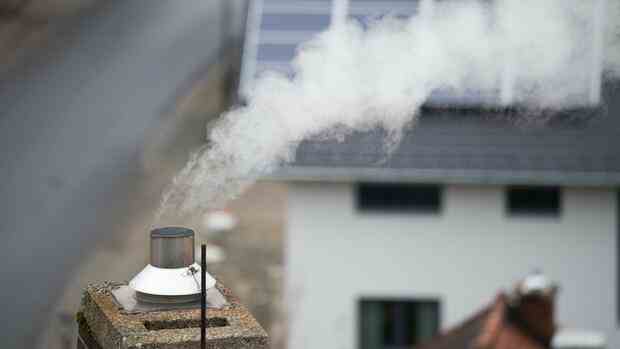The higher the energy efficiency of a building, the lower the landlord’s share of the CO2 tax.
(Photo: dpa)
Munich In Germany, anyone who causes a lot of carbon dioxide has to pay higher taxes. This is regulated by a law that was called the Fuel Emissions Trading Act in the nicest official German. The BEHG, as it is called, also states who has to pay taxes for the CO2 that real estate emits. In the case of residential buildings, it was previously the case that the occupants had to pay.
This means that in more than half of all residential buildings, tenants are taxed, not owners. The same applied to offices, business premises and other so-called non-residential buildings. But that will be different now. From January 1st, tenants and landlords have to share these costs.
What sounds simple and fair raises a lot of questions. The 50:50 rule does not apply at all, but a step-by-step model. It is true that the less CO2 the property emits into the air, the lower the landlord’s share. But that’s not all. The Handelsblatt explains what tenants and landlords need to know now.
Read on now
Get access to this and every other article in the
Web and in our app free of charge for 4 weeks.
Continue
Read on now
Get access to this and every other article in the
Web and in our app free of charge for 4 weeks.
Continue
